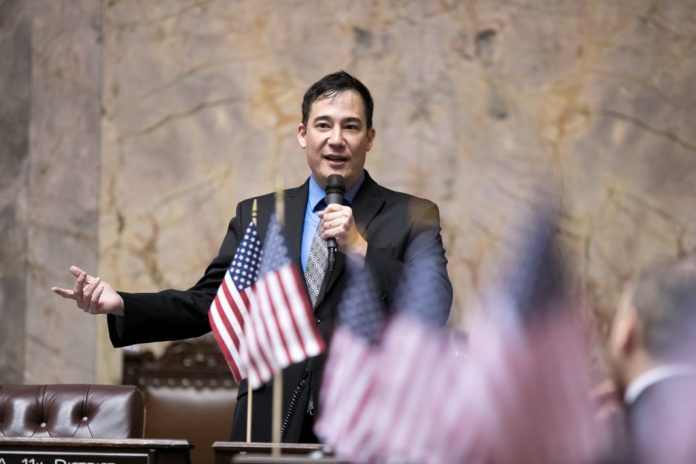
Voter turnout for the November 2023 election was the lowest on record for a general election in Washington State history, according to a Seattle Times analysis of election data from the Secretary of State’s Office. Division and distrust have permeated our democracy and low turnout is the result.
In Washington State, a multi-racial, multi-generational coalition of organizations has been working hard on policies at every level of democracy that would rebuild that trust, increase diversity, improve voter turnout, and help marginalized communities be more invested in our democratic process.
This year one of those policies is House Bill 2250, which proponents call the Washington VOICES Act, a bill created in response to the Washington State Supreme Court’s recent ruling on the Washington Voting Rights Act (WVRA). That decision made it clear that ranked-choice voting (RCV), already adopted by Seattle voters in November 2022, is coming to Washington whether or not the legislature passes HB 2250.
The only question is whether RCV comes to Washington in a series of patchwork configurations that are developed locale-by-locale, county-by-county, and court-by-court, or if the Washington State Legislature will pass HB 2250 to ensure consistent, baseline standards for implementation around the state.
Grassroots groups like those at Washington For Equitable Representation, The Washington Bus, Washington Community Alliance, Sightline Institute, More Equitable Democracy and FairVote Washington are dedicated to making our government better by making our elections more equitable, and are proposing HB 2250 as a key step to that end.
Unfortunately, those groups have been met with pushback from some who are claiming to have the same goals, including, it turns out, Washington Secretary of State Steve Hobbs, who is tasked with overseeing state elections.
“I tell people as they’re advocating for this, please look at this with an equity lens… They didn’t think about it,” Hobbs said of HB 2250.
As anyone can tell from the list of organizations supporting the bill, Secretary Hobbs couldn’t be more wrong.
In his testimony against HB 2250, Secretary Hobbs argued that communities of color, especially immigrant communities, might be harmed by RCV, the main subject of HB 2250. Real-world data shows he’s dead wrong.
In a California study by FairVote, researchers examined a large database of aggregate votes for candidates for local offices as well as demographic and social variables covering local elections from 1995 to 2014. They found that, when other variables were held constant, the adoption of RCV increased the percentage of candidates of color from 17.2% to 25.6%.
That data is exactly why members of WER, such as Latino Community Fund and CAIR WA, support the bill in the first place.
Meanwhile, standing with Secretary Hobbs in opposition to the bill are the Conservative Ladies of Washington, former Washington State initiative activist Tim Eyman, and Washington Election Integrity Coalition United, Washington State’s homegrown “stop the steal” election-denying organization.
Secretary Hobbs also voiced concerns for people with disabilities not being able to vote using RCV. Again, the data just does not bear that theory out. In fact, HB 2250 would actually benefit voters with disabilities. That’s why it should come as no surprise that Disability Rights Washington submitted written testimony supporting the bill.
It may be that the Secretary of State did not know the facts or the data that led to the Washington State Supreme Court ruling and led to so many community-based organizations supporting HB 2250, the Washington Voices Act. But now, Secretary Hobbs, you have the facts and data.
Our communities expect better from the first person of color elected Secretary of State.



